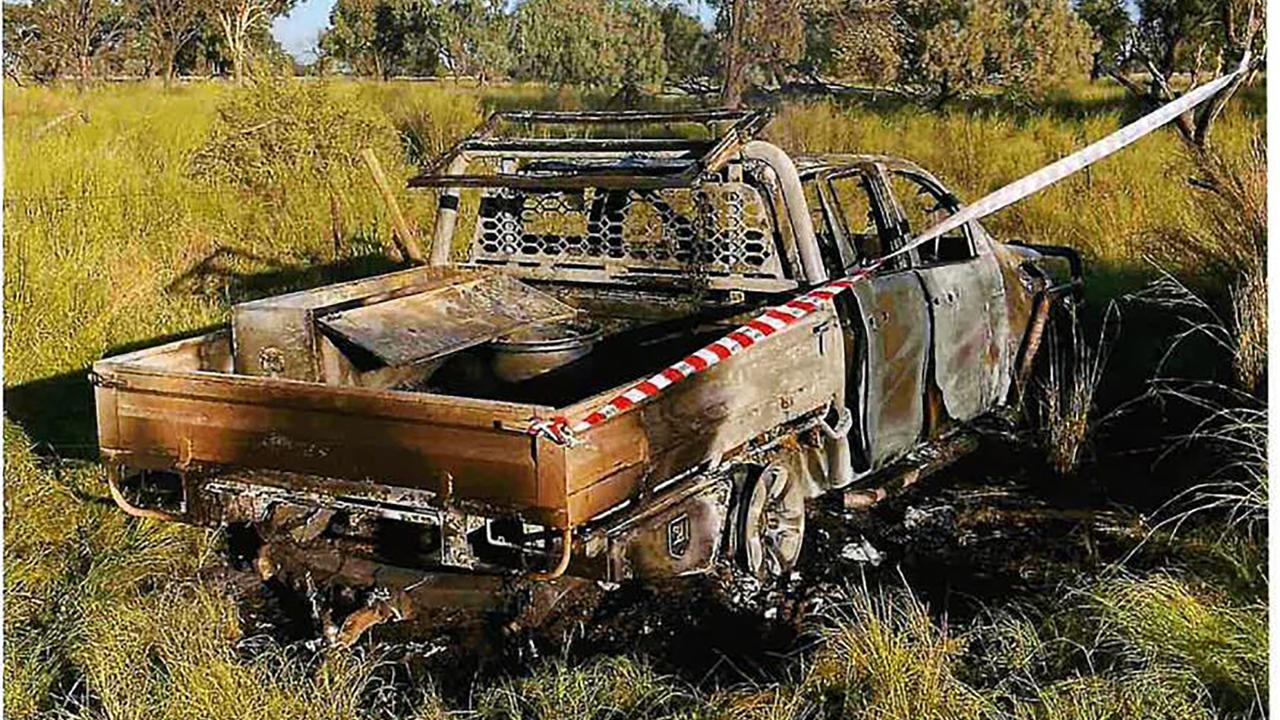
A farmhand accused of bludgeoning a neighbouring farmer to death allegedly confessed three times after the incident.
But Clinton Beau Wrigley attacked the confession witnesses as unreliable during closing arguments in his NSW Supreme Court trial on Tuesday.
The 40-year-old plead not guilty to murdering 58-year-old Joel Carter at a rural property in January 2023.
The farmer died of blunt-force trauma after being repeatedly bludgeoned over the head on the night of January 22 and or early the next day, the jury has been told.

Wrigley made three confessions to three witnesses after the alleged murder took place, crown prosecutor Michelle Swift said on Tuesday.
One witness said Wrigley told him that he had bludgeoned the farmer to death with a rubber mallet and hidden the weapon inside his burning ute.
But Wrigley's barrister Nicholas Broadbent SC called the witnesses unreliable and labelled one as "most unimpressive".
"You might say something shocking but that doesn't necessarily mean it's true," he said.
On Monday, Wrigley attempted to shift the blame onto his boss while giving evidence.
He also told the jury that all three witnesses and crown prosecutor were lying.
While his client's evidence was unsophisticated, Mr Broadbent told the jury that Wrigley's boss had numerous reasons to be frustrated with Mr Carter.
Mr Broadbent said the boss had entered into a share-farm agreement with Mr Carter, but a family member had given evidence that Mr Carter had not yet received any money from the agreement.
One witness said Wrigley's boss told her he never wanted to do business with Mr Carter again, Mr Broadbent told the jury.
The jury previously heard Wrigley's boss had numerous disagreements with Mr Carter, including one physical altercation.
Ms Swift accepted there was evidence that Mr Carter was a difficult person to work with and became angry or got abusive when drinking.
"But this does not mean he (Wrigley's boss) has responded in any manner that would make you question the crown case," she said.
The references made by Wrigley in his evidence about his boss were fairly mundane, offhand and taken out of context after Joel Carter's death, Ms Swift told the jury.
His body was found lying on a metal-framed bed in his lounge room in an advanced state of decomposition two days after he was killed.
Ms Swift addressed the defence's concerns that Wrigley's boss's DNA was found on the curtains in Mr Carter's room after his death.
But his boss had lived in Mr Carter's house for many years and had recently moved out before the incident occurred, she said.
It was therefore likely that his DNA would be present throughout the house, Ms Swift told the jury.
There was no DNA evidence from Wrigley present at the scene, but Ms Swift highlighted a conversation captured by police through a wire worn by his boss after the incident.
"You can search everything I've got ... I burnt it all," Wrigley told his boss in the taped conversation.
Prosecutors claim he revealed a motive for the alleged murder during the covertly recorded call, in which he said "the main thing that done" Mr Carter was his poor treatment of his sister-in-law.
But Mr Broadbent questioned the connection between Wrigley and Mr Carter's sister-in-law.
"You can apply your common sense when it comes to assessing a motive," he said.
The trial will continue on Wednesday at Dubbo's Supreme Court.







